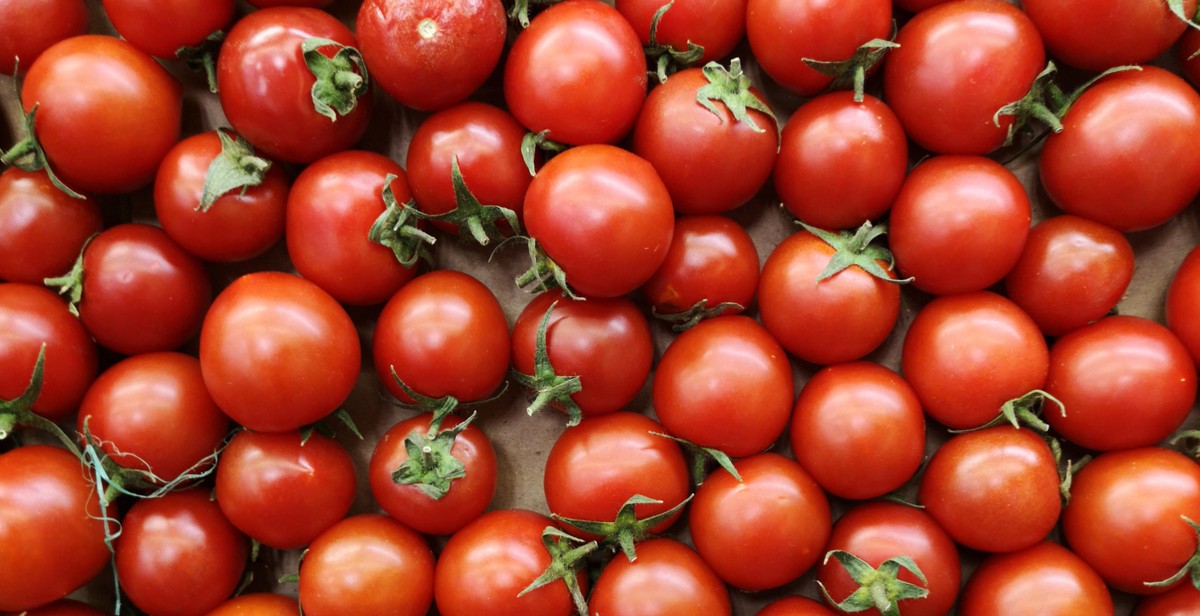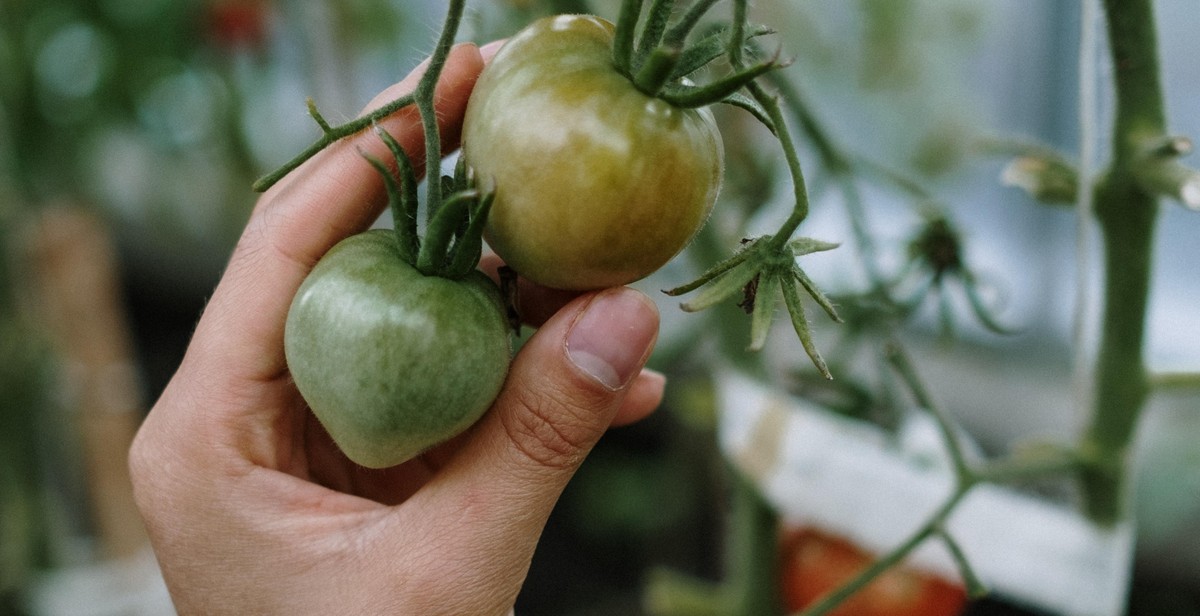The Benefits of Organic Farming: Introduction
Organic farming is a method of farming that involves the use of natural materials and techniques to grow crops and raise animals. It is a sustainable and environmentally friendly approach that aims to produce healthy and nutritious food while minimizing the impact on the environment.
What is Organic Farming?
Organic farming is a holistic approach to farming that focuses on the health and well-being of the soil, plants, animals, and people involved in the process. It avoids the use of synthetic fertilizers, pesticides, and genetically modified organisms (GMOs) and instead relies on natural methods such as crop rotation, composting, and the use of beneficial insects to control pests.
Organic farming also prioritizes the use of renewable resources and conservation of biodiversity. This means that organic farmers work to maintain a balance between their agricultural practices and the natural ecosystems around them.
The Benefits of Organic Farming
Organic farming has many benefits, both for the farmers and for consumers. By avoiding the use of synthetic chemicals, organic farmers can produce food that is free from harmful residues and chemicals. This makes it a healthier choice for consumers, especially those with allergies and sensitivities.
Organic farming also helps to reduce the environmental impact of agriculture by promoting sustainable practices and conservation of natural resources. This includes reducing soil erosion, improving soil health, and protecting water quality.
In addition, organic farming supports local communities by promoting small-scale and family farming operations. It also helps to preserve traditional farming practices and knowledge, which can be lost in modern industrial farming systems.

Health Benefits of Organic Farming
Organic farming has numerous health benefits that make it a preferred choice for many consumers. Here are some of the health benefits of organic farming:
Reduced Chemical Exposure
One of the primary benefits of organic farming is the reduced exposure to harmful chemicals commonly found in conventional farming practices. Organic farmers use natural methods to control pests and diseases, such as crop rotation, companion planting, and natural predators, instead of relying on synthetic pesticides and herbicides that can be harmful to human health.
Studies have shown that exposure to these chemicals can have negative health effects, such as respiratory problems, neurological disorders, and even cancer. By choosing organic products, consumers can reduce their exposure to these harmful chemicals and promote better health for themselves and their families.
Higher Nutritional Value
Organic farming practices also lead to higher nutritional value in the food produced. Organic crops are grown in nutrient-rich soil, which provides the plants with the necessary minerals and nutrients to grow and develop properly. In contrast, conventional farming practices often rely on synthetic fertilizers that do not provide the same level of nutrition to the plants.
Studies have shown that organic crops have higher levels of certain nutrients, such as vitamins, minerals, and antioxidants, compared to conventionally grown crops. For example, organic fruits and vegetables have been found to have higher levels of vitamin C, iron, and magnesium, which are important for maintaining good health and preventing disease.
Overall, organic farming offers numerous health benefits that make it a preferred choice for many consumers. By choosing organic products, consumers can reduce their exposure to harmful chemicals and increase their intake of essential nutrients, leading to better health outcomes.

Environmental Benefits of Organic Farming
Organic farming is a sustainable agricultural practice that has numerous environmental benefits. Below are some of the key benefits:
Reduced Soil Erosion
Conventional farming practices often involve tilling the soil, which can lead to soil erosion. However, organic farming methods prioritize soil conservation practices such as crop rotation, cover cropping and reduced tillage, which help to minimize soil erosion. These practices help to maintain the structure and composition of soil, improving its ability to hold water and nutrients, and reduce the risk of soil degradation.
Improved Soil Quality
Organic farming practices prioritize the use of natural fertilizers such as compost and manure, which help to improve soil fertility. These fertilizers increase soil organic matter, which in turn improves soil structure, water-holding capacity and nutrient availability, leading to healthier and more productive soils. Additionally, organic farming practices discourage the use of synthetic chemicals, which can degrade soil quality over time.
Sustainable Agriculture
Organic farming is a sustainable agricultural practice that prioritizes the long-term health of the environment. By avoiding the use of synthetic chemicals and prioritizing soil conservation practices, organic farming helps to maintain a healthy ecosystem. Additionally, organic farming practices help to reduce greenhouse gas emissions by promoting the use of renewable energy sources and reducing the use of fossil fuels.
Overall, organic farming has numerous environmental benefits, from reducing soil erosion to promoting sustainable agriculture. By prioritizing soil conservation practices and natural fertilizers, organic farming helps to maintain healthy and productive soils, leading to a more sustainable and resilient agricultural system.

Economic Benefits of Organic Farming
Organic farming has been gaining popularity in recent years as consumers become more aware of the benefits of consuming organic products. But, it’s not just consumers who benefit from organic farming; farmers can also reap economic benefits from adopting organic farming practices. Here are two significant economic benefits of organic farming:
Lower Production Costs
One of the primary economic benefits of organic farming is that it can result in lower production costs. Organic farming typically requires fewer inputs, such as synthetic fertilizers and pesticides, which can be expensive. Additionally, organic farmers often rely on natural methods of pest control and soil fertility, such as crop rotation and composting, which can reduce the need for expensive inputs even further. By reducing the amount of money spent on inputs, organic farmers can lower their overall production costs, which can lead to higher profits.
Higher Profit Margins
Another significant economic benefit of organic farming is that it can lead to higher profit margins. Because organic products typically command a higher price in the market, farmers who adopt organic farming practices can often sell their products at a higher price than conventional farmers. Additionally, organic farming can result in higher yields and better quality products, which can also lead to higher profits. By selling their products at a higher price and producing more high-quality products, organic farmers can increase their profit margins and improve their economic sustainability.
| Farming Method | Production Costs | Profit Margins |
|---|---|---|
| Organic Farming | Lower | Higher |
| Conventional Farming | Higher | Lower |
Overall, organic farming can be a profitable and sustainable farming method for farmers who are willing to adopt organic practices. By reducing production costs and increasing profit margins, organic farming can help farmers achieve economic sustainability while also providing consumers with high-quality and healthy products.

Challenges of Organic Farming
While organic farming offers numerous benefits, it also presents several challenges that make it difficult for farmers to adopt. The following are some of the main challenges of organic farming:
Higher Labor Costs
Organic farming practices require more manual labor than conventional farming methods. For example, instead of using chemical herbicides to control weeds, organic farmers rely on hand weeding or cultivating with machinery. This means that organic farmers need more workers to perform these tasks, which can increase labor costs. In addition, organic farmers often pay higher wages to attract and retain skilled workers who are knowledgeable about organic farming practices.
Limited Availability and Accessibility
Organic farming also faces challenges related to limited availability and accessibility. Organic farming requires specific conditions, such as fertile soil and access to clean water, to be successful. However, not all regions or countries have these conditions, which limits the availability of organic products. Additionally, organic products may not be accessible to all consumers due to their higher prices compared to conventional products. This can make it difficult for organic farmers to find markets for their products and for consumers to access organic products.
| Challenges | Description |
|---|---|
| Higher Labor Costs | Organic farming practices require more manual labor than conventional farming methods, which can increase labor costs. |
| Limited Availability and Accessibility | Organic farming requires specific conditions to be successful, which limits the availability of organic products and may make them inaccessible to some consumers. |
Despite these challenges, organic farming continues to gain popularity as consumers become more aware of the benefits of organic products. By addressing these challenges, organic farmers can help meet the growing demand for organic products and contribute to a more sustainable food system.

Conclusion
Organic farming is an environmentally friendly and sustainable method of agriculture that offers numerous benefits to both the farmers and consumers. By avoiding the use of synthetic pesticides and fertilizers, organic farming helps to protect soil health, reduce water pollution, and preserve biodiversity. In addition, organic crops are free from harmful chemicals, making them safer and healthier for consumption.
Moreover, organic farming can also help to mitigate climate change by reducing greenhouse gas emissions and promoting carbon sequestration in the soil. Organic farms also tend to have a higher level of biodiversity, which can help to improve soil fertility and reduce the risk of crop failure due to pests and diseases.
While organic farming may require more labor and time compared to conventional farming, the benefits it offers are worth the effort. By supporting organic farmers and choosing organic products, we can help to promote sustainable agriculture and protect our planet’s natural resources.
Key Takeaways
- Organic farming is an environmentally friendly and sustainable method of agriculture that avoids the use of synthetic pesticides and fertilizers.
- Organic farming helps to protect soil health, reduce water pollution, and preserve biodiversity.
- Organic crops are free from harmful chemicals, making them safer and healthier for consumption.
- Organic farming can help to mitigate climate change by reducing greenhouse gas emissions and promoting carbon sequestration in the soil.
- Supporting organic farmers and choosing organic products can help to promote sustainable agriculture and protect our planet’s natural resources.
| Benefits of organic farming | Key Takeaways |
|---|---|
| Protects soil health | Avoids synthetic pesticides and fertilizers |
| Reduces water pollution | Preserves biodiversity |
| Produces safer and healthier crops | Reduces greenhouse gas emissions |
| Promotes carbon sequestration in the soil | Improves soil fertility |
| Supports sustainable agriculture | Protects natural resources |
